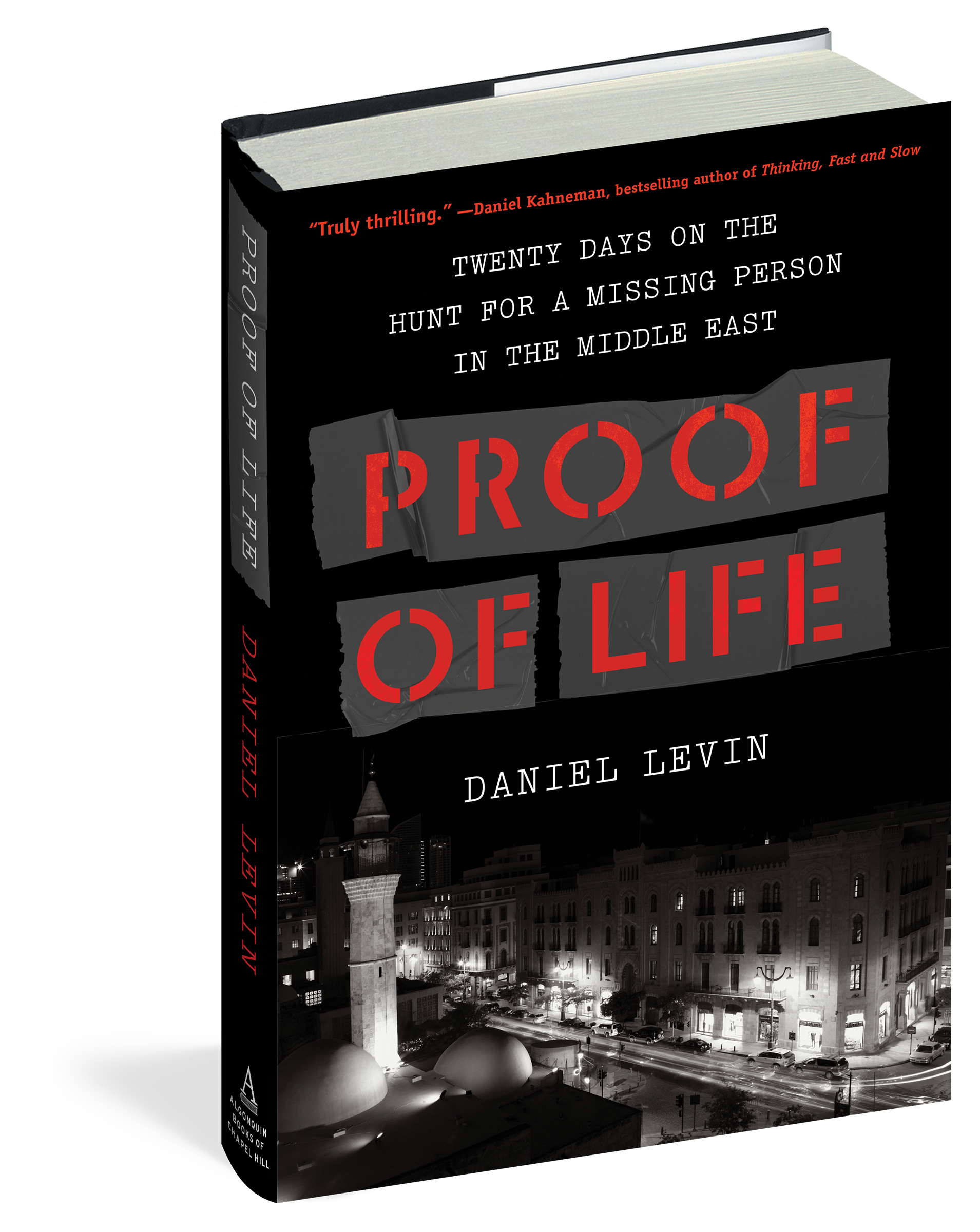
This week, Whale Hunting talks to Daniel Levin, who spends his days negotiating behind the scenes to free hostages or engaging quietly with Middle Eastern governments to seek political settlements (what's known as track 3 diplomacy). In this interview, I probed Daniel about the skills he's
This week, Whale Hunting talks to Daniel Levin, who spends his days negotiating behind the scenes to free hostages or engaging quietly with Middle Eastern governments to seek political settlements (what's known as track 3 diplomacy). In this interview, I probed Daniel about the skills he's honed over the years and how they relate to his background.
Daniel spent his early years as the son of a diplomat in the Middle East and in Africa, which exposed him to many cultures, languages, and religions. Following his law studies, military service (special forces during first Gulf War 1990-1991), and an academic career (PhD on conflicts between secular and religious legal systems), he has spent the last twenty-five years working with governments and development institutions worldwide, focusing on economic development and political reform through financial literacy, political inclusion, and constitutional initiatives.
In his capacity as member of the board of the Liechtenstein Foundation for State Governance, he is currently engaged in track 3 diplomacy, mediation efforts, and hostage negotiations in war zones, and has worked with think tanks on novel constitutional models and on anticorruption and political reform initiatives. Over the past ten years, he has helped monarchies as they consider ways to increase the democratic legitimization of their monarchic systems.
This story is open to all and our work is available for free to anyone who signs up with their e-mail. But investigations like this aren't cheap. If you believe accountability journalism matters, consider upgrading to a paid subscription—or sending a one-time boost. Every contribution directly funds more reporting like this.
Have a tip? Reach us at:
📩 whalehunting@projectbrazen.com
📧 projectbrazen@protonmail.com
🔒 Secure contact details here.
We protect our sources.
He's the author of two books. The most recent, "Proof of Life", is the thrilling story of Daniel's attempt to free a hostage in Syria. If you want to learn more about Daniel's fascinating life, I urge you to pick it up, or listen to his deep interview with Jordan Harbinger.
--Tom

What’s the difference between negotiating a business deal, a hostage release and for Iran to give up its nuclear weapons? Are there any similarities?
There are commonalities to all forms of negotiation, in that a strong position requires leverage, chips of value, and the ability to issue a threat that is credible and can be repeated or repurposed (one-time threats are empty threats, or rather not really threats at all, in true meaning of a negotiation). Most rules of negotiation apply to all forms, with one exception: while business negotiations may have confidentiality stipulations, and violations might have negative consequences that can range from a nuisance to penalties and investigations (e.g., in the case of M&A negotiations for a public company), publicity is not necessarily fatal to a business negotiation, and can, in certain instances when strategically and tactically deployed, even be beneficial.
In hostage negotiations, however, publicity is always detrimental to the objective of freeing the hostage, and often also tragically fatal. Publicity angers the hostage takers – the very individuals whose willingness to come to terms is being sought – and also raises the price for the hostage, thereby diminishing, often irrevocably, the likelihood of a beneficial outcome. [Editor note: Read Daniel's plea here on how to handle these tense negotiations.]
Lastly, negotiations with Iran, on the nuclear weapons (JCPOA) or other issues, follow entirely different dynamics and entail unique challenges. Because of the climate of distrust and (well-founded) paranoia among senior officials, in particular senior IRGC officers (Islamic Revolutionary Guard Corps), each decision maker has ten minders, and each minder has his own ten minders. That means that negotiations on all meaningful matters become winding, tedious wars of attrition, to which even the overused term “multidimensional chess” does not do justice. It is not sufficient to think and anticipate several moves ahead, because all the pieces are connected by invisible strings that cause all the other pieces to move, too, making prognostication futile. In this environment, publicity can be a helpful tool, though limited to defensive hedging strategies by causing certain unwelcome options or individuals to be disqualified by being publicly outed (in the case of individuals, “poisoned by suspicion”). It is a negotiating weapon to be deployed with the same mindset as how to make love to a porcupine: carefully!
 Related Posts
Related Posts